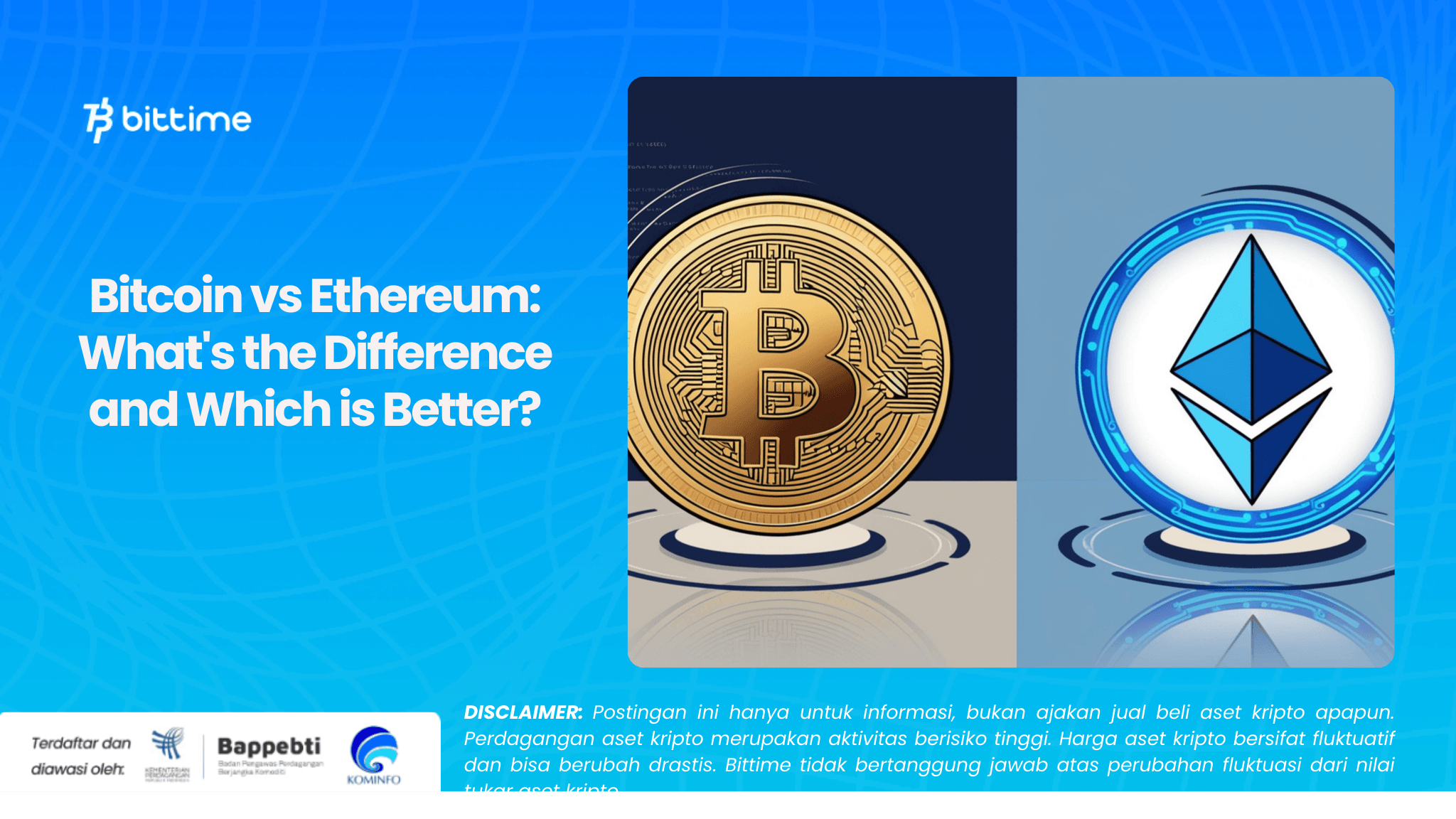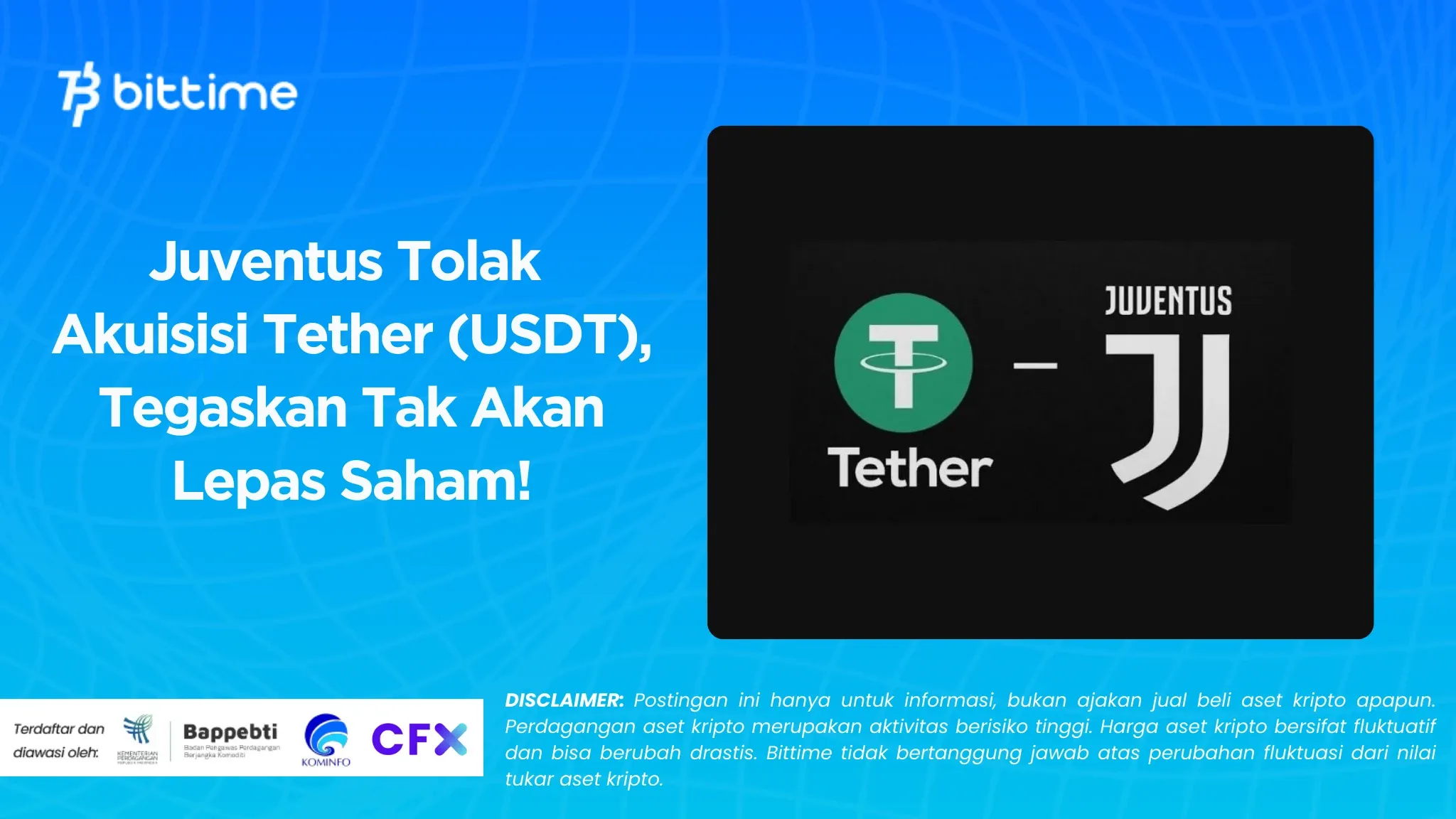Bitcoin vs Ethereum: What's the Difference and Which is Better?
2024-08-20
Bittime - Bitcoin and Ethereum are the top two crypto assets that are attracting the attention of investors around the world. Even though they have several similarities, such as the use of blockchain technology and being the main choice in investment portfolios, there are fundamental differences that are important for every investor to understand. Anything? Let's look at the following article to find out the answer.
Fundamental Bitcoin vs Ethereum
Bitcoin: "Emas Digital"
Created in 2009 by Satoshi Nakamoto, Bitcoin was the first crypto asset launched in the world. Bitcoin was designed as a “Peer-to-Peer Electronic Cash System,” allowing digital transactions without the need for intermediaries such as banks. Due to its finite nature, Bitcoin is often referred to as "digital gold" and functions as a store of value as well as a hedge against inflation.
Ethereum: Platform Smart Contract dan dApp
Ethereum was introduced by Vitalik Buterin in 2015 as a more advanced platform than Bitcoin. Apart from being a crypto asset, Ethereum enables the development and execution of smart contracts and decentralized applications (dApps) on top of its blockchain. Ether (ETH), Ethereum's native token, is used to pay transaction fees and incentivize validators.
Market Capitalization and Energy Use
Large and Fluctuating Market Capitalization
Bitcoin and Ethereum are the two assets with the largest market capitalization in the crypto world. However, the prices of both are highly volatile and often correlated. Bitcoin price changes often influence the price movements of Ethereum and other crypto assetsa.
Differences in Energy Use
- Bitcoin (Proof of Work - PoW): Bitcoin uses a Proof of Work mechanism, where miners must complete complex computations to process transactions. This process requires enormous energy.
- Ethereum (Proof of Stake - PoS): Ethereum has switched to a Proof of Stake mechanism through Ethereum 2.0, where validators provide ETH as collateral to validate transactions. This system is more energy efficient than PoW.
Future Potential: Bitcoin vs Ethereum
Bitcoin as a Store of Value
Bitcoin is seen as a stable and inflation-resistant asset, similar to gold. Most likely, Bitcoin will continue to play its role as the main store of value in the crypto world.
Ethereum as an Application Platform
Ethereum has great potential for wider adoption across various sectors, thanks to its functionality supporting dApps ecosystems, asset tokenization, and social media networks. As blockchain technology continues to develop, Ethereum can continue to grow as a leading decentralized application platform.
Conclusion: Which is Better for Investment?
Bitcoin and Ethereum are two very different crypto assets, with their own advantages and disadvantages. To take advantage of potential profits while reducing risk, investors may need to consider diversifying between the two. Understanding these differences is an important first step before deciding on your investment strategy.
How to Buy Crypto on Bittime
You can buy and sell crypto assets easily and safely via Bittime. Bittime is one of the best crypto applications in Indonesia which is officially registered with Bappebti.
To be able to buy crypto assets on Bittime, make sure you have registered and completed identity verification. Apart from that, also ensure you have sufficient balance by depositing some funds into your wallet. For your information, the minimum purchase of assets on Bittime is IDR 10,000. After that, you can purchase crypto assets in the application. Study Complete Guide How to Buy Crypto on Bittime.
Monitor graphic movement of Bitcoin (BTC) price, Ethereum (ETH), Solana (SOL), and other cryptos to find out today's crypto market trends in real-time on Bittime.
Disclaimer: The views expressed belong exclusively to the author and do not reflect the views of this platform. This platform and its affiliates disclaim any responsibility for the accuracy or suitability of the information provided. It is for informational purposes only and not intended as financial or investment advice.






